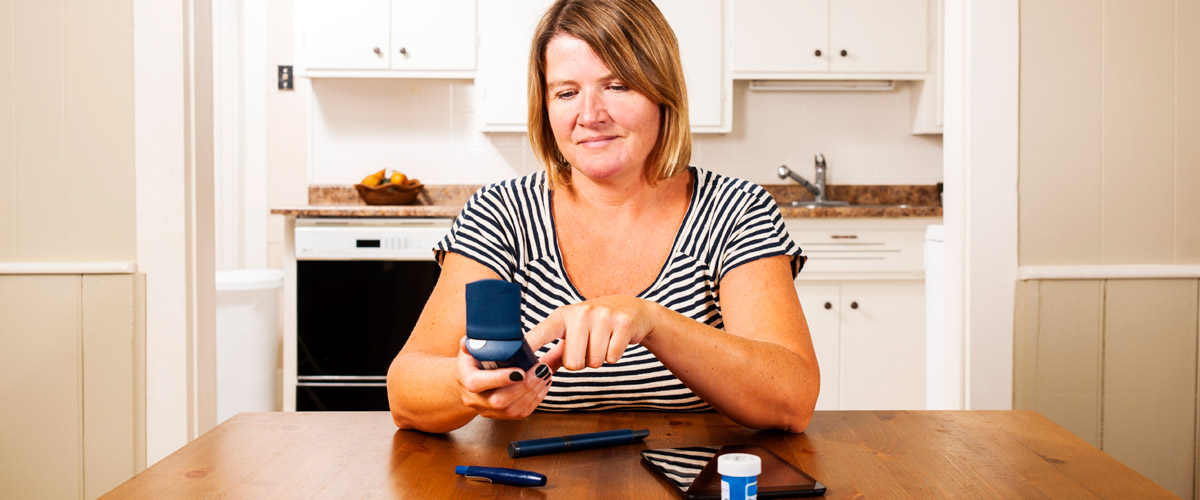Diabetes is a common word, we hear it often and probably know of at least one person who suffers from the disease. The condition is formally known as Diabetes Mellitus, (Mellitus is just the fancy word for type 1 and type 2 diabetes). Below are some facts about Type 2 Diabetes, its symptoms as well as other effects it has on patients who have it.
Type 2 Diabetes Defined
Type two diabetes occurs when the body is unable to use energy from food because it is not digesting it properly. This occurs mainly because the pancreas does not produce enough insulin to turn the carbohydrates the individual consumes, into energy. Or in some cases the pancreas does produce insulin but the individual’s body resists it.
So this means they end up with high blood sugar levels because of the lack of insulin to turn the carbohydrates into energy. When that happens, the glucose will remain in the blood at elevated levels which causes other symptoms.
Type 2 Diabetes Symptoms
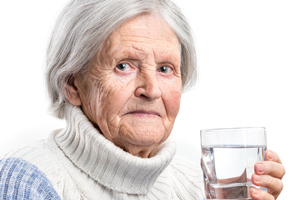 Having high glucose levels has a number of typical tell tale signs, but in type two diabetes, the signs are not so obvious. This is why almost a third of the people who have type two diabetes do not know it until the disease has caused some serious damage to their bodies. Some symptoms that do occur include:
Having high glucose levels has a number of typical tell tale signs, but in type two diabetes, the signs are not so obvious. This is why almost a third of the people who have type two diabetes do not know it until the disease has caused some serious damage to their bodies. Some symptoms that do occur include:
- excessive thirst
- excessive hunger
- fatigue
Overtime the longer term damage that type two diabetes can cause includes extreme fatigue, migraines, kidney failure and significant loss of vision. Individuals may also notice that their cuts heal extremely slowly and for women, they are more susceptible to yeast infections and urinary tract infections.
Type 2 Diabetes – Diet
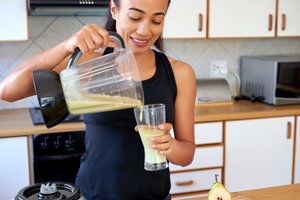 Your diet can put you at risk of contracting type two diabetes if it is high in processed meats, sugars and fast food. If you already have the condition, you can manage the effect it has on you just by controlling what you eat. The best thing to do after a diagnosis of Type Two diabetes is to visit a dietician and have them help you figure out what the healthiest diet would be for you.
Your diet can put you at risk of contracting type two diabetes if it is high in processed meats, sugars and fast food. If you already have the condition, you can manage the effect it has on you just by controlling what you eat. The best thing to do after a diagnosis of Type Two diabetes is to visit a dietician and have them help you figure out what the healthiest diet would be for you.
In general it is ideal, for people who suffer from Type 2 diabetes, to drastically cut down their sugar and fat intake and to maintain a balance of proteins and complex carbohydrates that would best benefit their bodies.
Type 2 Diabetes Treatment
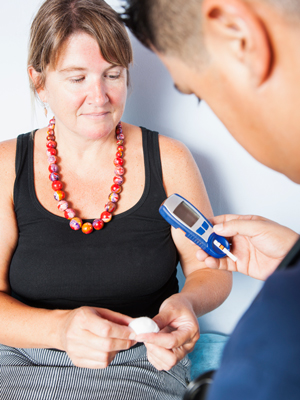 Depending on whether you are low on insulin or resistant to it, your doctor may recommend insulin shots on a daily basis. Some individuals who are no longer producing insulin at all, may have to take multiple insulin shots.
Depending on whether you are low on insulin or resistant to it, your doctor may recommend insulin shots on a daily basis. Some individuals who are no longer producing insulin at all, may have to take multiple insulin shots.
Your aim, whether you take insulin shots or not, is to manage your blood sugar levels. One can do that also with regular exercise and a healthy diet, provided your doctor has cleared you for other forms of treatment. It’s also best to reduce stress as much as possible. In some cases, stress has been linked to increased sugar in the blood stream.
Before committing to any exercise routine it’s best to get approval from your doctor and let them know that you are planning to introduce exercise into your daily life. They can also recommend what kind of exercise would best suit your health needs. For some, a 30 minute walk daily is all that’s recommended, while for others, your doctor may recommend a combination of cardio and some resistance training and possibly other disciplines like yoga and pilates. You should also consider what kind of exercise you enjoy doing best and decide with your doctor, what would be best for you.
As part of your treatment, your doctor may ask you to monitor your blood sugar levels to make sure they are at healthy levels. Your doctor will let you know how many times a day and at what times you should check your insulin levels. Various foods will make your insulin levels spike and monitoring your blood sugar levels will allow you to discover what those foods are and decide if they are going to continue to be a regular part of your diet or not.
Type 2 Diabetes Medication
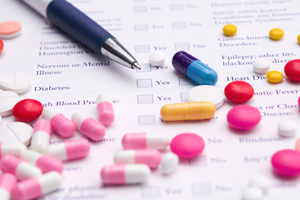 If your doctor feels that diet and exercise is not enough to maintain healthy blood sugar levels, it might be the case that you will need to take medication to manage your glucose levels. Taking insulin shots is only one type of medication that can help people with type ii diabetes. SOme medication can help the body produce more insulin and others can help the body overcome the fact that it is resistant to insulin. The most common drugs include:
If your doctor feels that diet and exercise is not enough to maintain healthy blood sugar levels, it might be the case that you will need to take medication to manage your glucose levels. Taking insulin shots is only one type of medication that can help people with type ii diabetes. SOme medication can help the body produce more insulin and others can help the body overcome the fact that it is resistant to insulin. The most common drugs include:
- Diabinese, Amaryl and Glynase: These drugs are commonly taken once or twice a day before meals. They stimulates the pancreas allowing it to produce more insulin.
- Prandin and Starlix: These drugs are taken once before each of the three main meals daily. They work but signalling the pancreas to create more insulin when the body is not producing enough.
- Glucophage and Glumetza (both contain Metformin): Taken twice daily, this drug decreases the amount of glucose produced by the liver. This drug also makes the muscle tissue more susceptible to insulin so glucose can be absorbed thereby reducing its presence in the blood stream.
- Avandia and Actos: Taken once or twice a day with food, these drug reduces the amount of glucose produced in the liver while helping insulin in the body operate at its optimum in muscles and fat cells.
- Glycet: Taken with the first bite of any meal, this drug helps lower the blood sugar level by not allowing starches to be broken down in the body. This will mean that your blood sugar level won’t spike after eating.
You doctor will let you know what drug or combination of drugs would work best for you. If you experience any unexpected side effects, be sure to let your doctor know immediately.
Type 2 Diabetes Causes
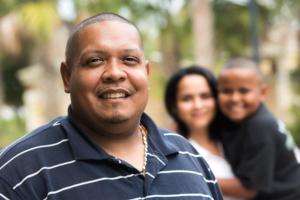 It is still unknown what causes the onset of type two diabetes, but for the most part doctors agree that one’s lifestyle and genetics contribute greatly to your chances of contracting the condition.
It is still unknown what causes the onset of type two diabetes, but for the most part doctors agree that one’s lifestyle and genetics contribute greatly to your chances of contracting the condition.
To make sure that you decrease you chances of getting type two diabetes it’s best to eat healthy and exercise regularly. These two factors have been closely linked to the prevention and control of the disease even though it is unclear exactly what causes the body to stop producing the amount of insulin it needs to break down carbohydrates into energy in an efficient and healthy manner.
Type 2 Diabetes Cure
There is no known cure for diabetes, but one can get to a stage where there are no signs of the disease being active in their body. This is known as going into remission. WHen this happens, individuals are encouraged to maintain a healthy lifestyle with the right diet and exercise so that the symptoms don’t re-appear, which is always a possibility.
Type 2 Diabetes and Children
 Children are not exempt from Type Two Diabetes and often when children are overweight or have unhealthy diets and do not exercise regularly they are at risk for contracting the disease.
Children are not exempt from Type Two Diabetes and often when children are overweight or have unhealthy diets and do not exercise regularly they are at risk for contracting the disease.
Like adults, the best way to prevent brushing shoulders with diabetes is to maintain a healthy lifestyles. Children should be encouraged to spend a certain amount of time outdoors and to play sports or exercise on a regular basis. If they get used to being active, not only will they be able to help prevent the onset of Type Two diabetes, but they may also prevent it from becoming a part of their lives when they get older.
Type 2 Diabetes and Alcohol
Alcohol has very high levels are sugar and as such is not the top priority when it comes to the diet of someone who has type ii diabetes. Having said that, alcohol is not prohibited for people who suffer from type two diabetes, but similar to their food, it just needs to be controlled.

